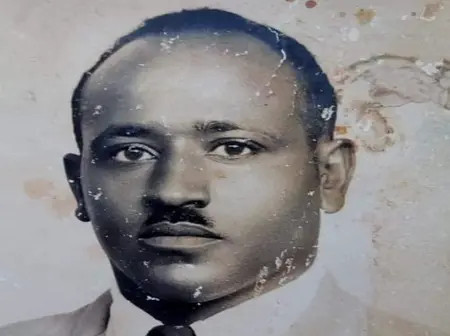The government is finally set to honour Senior Chief Haji Galma Dido, one of northern Kenya’s foremost sons, whose patriotism and bravery led to his death in 1963 at the onset of the Shifta war.
Haji is among several heroes to be honoured by President William Ruto’s administration after a 62-year plea by his family for recognition, compensation, and a befitting tribute. His name is listed among those to be honoured on Mashujaa Day, October 20, 2025.
“Haji is being honoured for his contribution during the struggle for independence in the Northern Region and Kenya at large. As a senior chief, he worked closely with Mzee Jomo Kenyatta, ensuring peace in the region and preventing secession to Somalia,” states a detailed government brief on his role.
11 years ago, Haji’s two surviving daughters, Deka Galma and her stepsister Hadija Galma, sought court compensation from the British and Kenyan governments and access to their father’s pension.
The senior chief was assassinated by secessionists alongside prominent provincial officer Daudi Wabera while on safari in Isiolo in June 1963.
Wabera’s name was immortalised on a street running through the heart of Nairobi, branching off Kenyatta Avenue and ending at the City Hall Way roundabout opposite the Supreme Court building.
Haji’s sacrifice as a patriot who defended Kenya’s unity and paid the ultimate price was, for the most part, ignored.
However, for residents of northern Kenya, Wabera and Haji are intertwined; the street bears the name of one of their own – a hero.
Before their untimely deaths, the mood in the country was euphoric.
After 70 years of colonial rule, the yoke of oppression had been shattered, and a new generation of African leaders was steering Kenya into independence.
While most of the country eagerly awaited the colonial flag’s lowering, residents of the Northern Frontier District, then part of British Kenya, were jittery and uncertain about their future.
Months earlier, in 1962, some northern Kenya residents had attempted to break away, believing their region would be better off merged with Somalia.
Kenya’s political leadership rejected this, determined not to yield any Kenyan soil to the neighbouring Somalia.
The government had just won a referendum deciding whether the region would remain in Kenya or align with Mogadishu.
A few days after Kenya’s first Madaraka Day, Wabera visited Sericho with Haji for a meeting with residents. As the officials concluded their speeches, three assassins lay in wait nearby.
As the group left, the gunmen, believed to be acting on orders from a senior Somali leader, targeted and killed the two administrators. The officers with them were unharmed. The assassins then fled towards the Kenya-Somalia border.
When then-President Jomo Kenyatta learned of the killings, he was furious with Leslie Pridgeon, the assistant police commissioner in charge of the Northern Frontier region.
Pridgeon was expelled from Nairobi in July 1964.

Leave a Reply